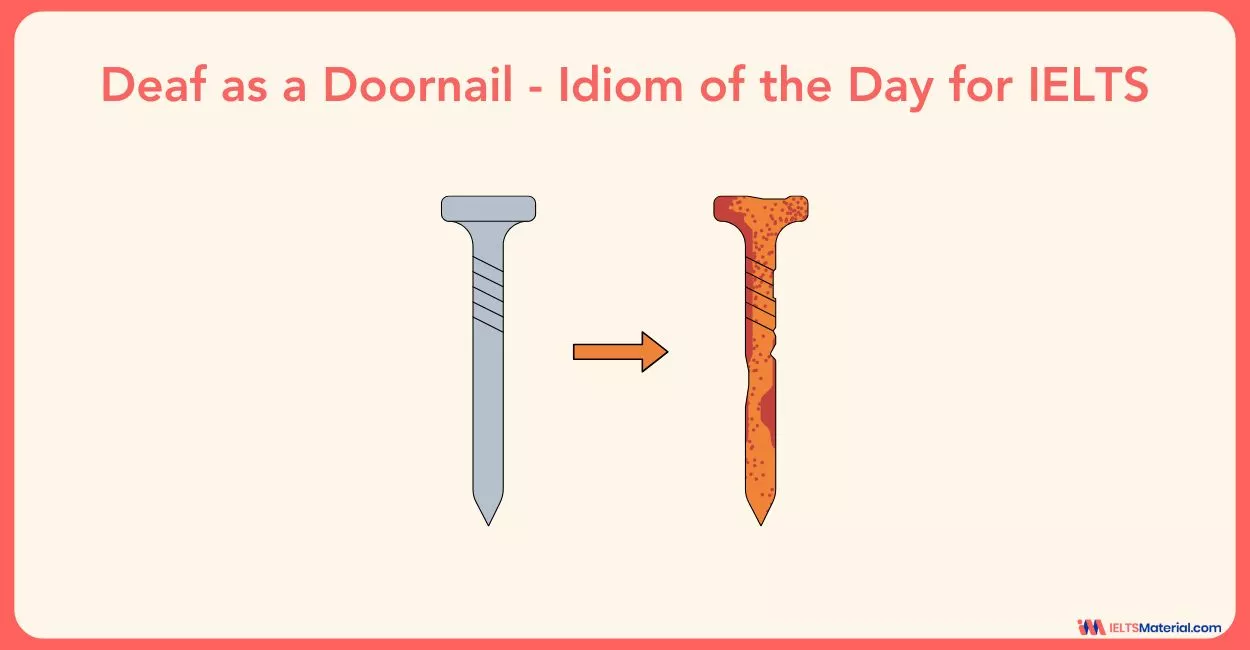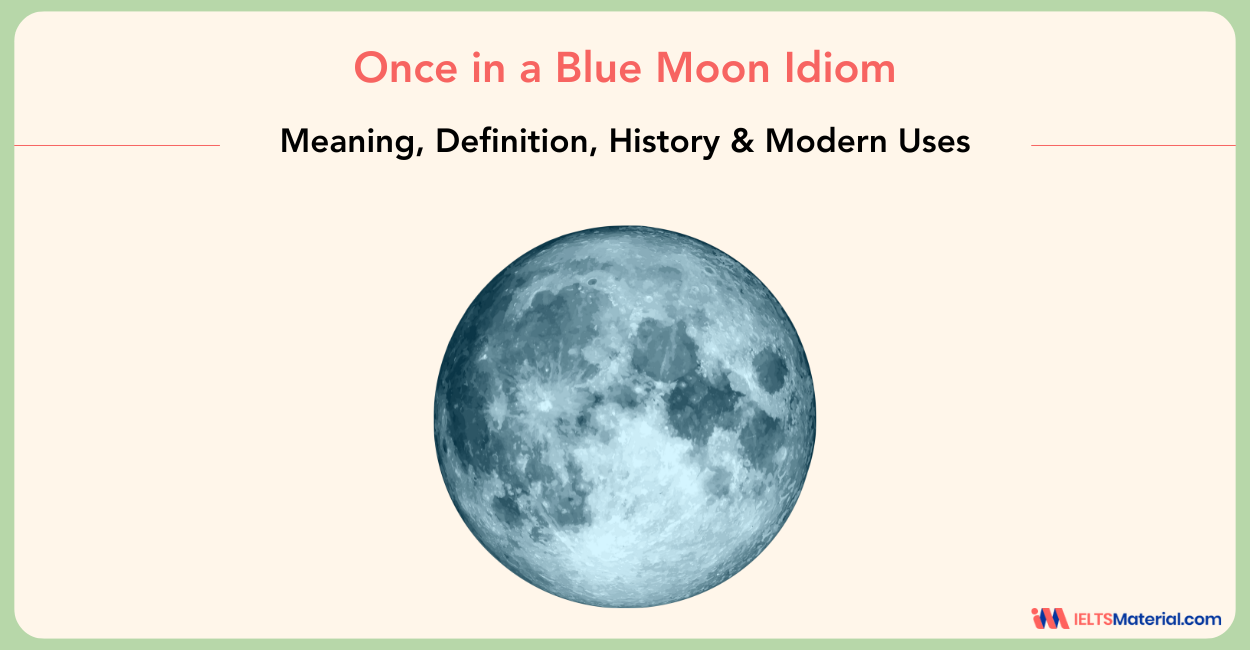Not Lose Sleep Over – Idiom of the Day for IELTS
Boost your IELTS Speaking score with the idiom “Not Lose Sleep Over.” Learn its meaning, origin, examples, sample cue card answer, common mistakes, and exercises to use it naturally and confidently in Part 2 & Part 3 responses for a higher band.
Table of Contents
- Meaning of 'Not Lose Sleep Over'
- Origin of the Idiom 'Not Lose Sleep Over'
- Usage of 'Not Lose Sleep Over' in Context
- When to Use the Idiom 'Not Lose Sleep Over'
- Idiom Scenarios
- Sample Answer Using the Idiom 'Not Lose Sleep Over'
- Common Mistakes to Avoid while Using 'Not Lose Sleep Over'
- IELTS Vocabulary Tip for 'Not Lose Sleep Over'
- Exercise: 'Not Lose Sleep Over'

Limited-Time Offer : Access a FREE 10-Day IELTS Study Plan!
When preparing for the IELTS Speaking test, using idiomatic expressions naturally and correctly can boost your score, particularly in the Lexical Resource criterion. Today’s idiom, "Not Lose Sleep Over," is a useful expression to learn and apply when talking about stress, worry, or handling failures calmly.
Meaning of 'Not Lose Sleep Over'
Definition:
To not worry or feel overly concerned about something.
In simpler terms, when someone says they “will not lose sleep over” an issue, it means they don’t find it worth worrying about and prefer to move on.
Origin of the Idiom 'Not Lose Sleep Over'
The idiom dates back to the early 20th century and comes from the natural link between worry and insomnia. Since worrying often prevents restful sleep, the phrase emphasizes staying calm and unaffected instead of letting issues disturb peace of mind.
Usage of 'Not Lose Sleep Over' in Context
Here are some example sentences showing how the idiom is used in the IELTS Speaking:
- “I studied very hard, so I will not lose sleep over the result of the test.”
- “Jack doesn’t lose sleep over what others think about him; he just focuses on his goals.”
- “Don’t lose sleep over the failure; learn from it and keep moving forward.”
Grab the newly launched Vocabulary for IELTS (Essential words for popular topics in IELTS) to level up your preparation.
When to Use the Idiom 'Not Lose Sleep Over'
You can use “not lose sleep over” in IELTS Speaking Part 1 or IELTS Speaking Part 2 or IELTS Speaking Part 3, when you’re:
- Talking about failures or setbacks.
- Describing stressful events and how you managed them.
- Explaining your attitude towards criticism, challenges, or obstacles.
Idiom Scenarios
Scenario 1:
Anna: You don’t seem upset about your low score.
Lisa: Honestly, I won’t lose sleep over it. I know I can improve next time.
Scenario 2:
James: People are gossiping about you. Doesn’t it bother you?
Ryan: Not at all. I don’t lose sleep over what others think.
Sample Answer Using the Idiom 'Not Lose Sleep Over'
IELTS Speaking Part 2 – Describe a failure you have experienced. Try to use this idiom in your answer.
You should say:
- What the failure was
- When it happened
- How you felt when you faced it
- And explain what lessons you learned from it
Sample Answer:
One failure I experienced was when I couldn’t clear a competitive exam on my first attempt. It happened two years ago after months of preparation. Initially, I felt disappointed, but I decided not to lose sleep over it. Instead, I analyzed my mistakes, changed my study strategy, and worked harder. In the next attempt, I performed much better. This experience taught me that worrying too much is useless; what matters is learning from setbacks and moving forward with determination.
Want to master more high-band IELTS vocabulary for the IELTS exam? Book a Free Demo Class today.
Common Mistakes to Avoid while Using 'Not Lose Sleep Over'
- Don’t use it for small daily activities; it specifically refers to things that could cause worry.
- Avoid using it in contexts where you actually should be worried, as it might sound careless.
- Remember, it implies staying calm and unconcerned, not being indifferent to everything.
IELTS Vocabulary Tip for 'Not Lose Sleep Over'
Using idioms like “not lose sleep over” in your IELTS Speaking answers shows that you can speak naturally and with emotional depth. This idiom is especially useful when describing failure, handling criticism, or talking about pressure. Use it wisely to sound confident and resilient.
Exercise: 'Not Lose Sleep Over'
Multiple-Choice Question
Q1: What does “not lose sleep over” mean in the sentence below?
“It was just a silly argument – I wouldn’t lose sleep over it.”
a) Feel very sad
b) Worry too much
c) Stay calm and not worry
d) Forget about it completely
Correct Answer: c) Stay calm and not worry
Fill-in-the-Blank
Q2: “Even though I didn’t win the competition, I decided to __________.”
a) Lose sleep over it
b) Go out like a light
c) Not lose sleep over it
d) Face the music
Correct Answer: c) Not lose sleep over it
Want to master more high-band IELTS vocabulary for the IELTS exam? Book a Free Demo Class today.
“Not lose sleep over” is a practical idiom to make your IELTS Speaking answers more expressive and confident. Whether you’re describing failures, stress, or criticism, this idiom helps you sound calm, resilient, and natural. Just be sure to use it in the right context. If you're aiming for top scores, follow the IELTS Exam Preparation Tips for Band Score of 8+ to further enhance your vocabulary and overall test performance.
Also Check:
- 21+ Tips On How to Improve Your IELTS Writing Band Score
- IELTS Exam Preparation Tips for Band Score of 8+
- IELTS Writing Task 1 Connectors
- 10 Useful IELTS Speaking Tips to Impress the Examiner
- Useful Idioms for IELTS Speaking to Score Band 8.0+
Explore IELTS Resources

Start Preparing for IELTS: Get Your 10-Day Study Plan Today!
Recent Articles

Kasturika Samanta

Prity Mallick

Nehasri Ravishenbagam





Post your Comments